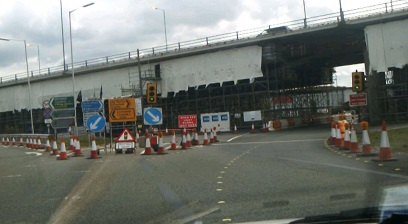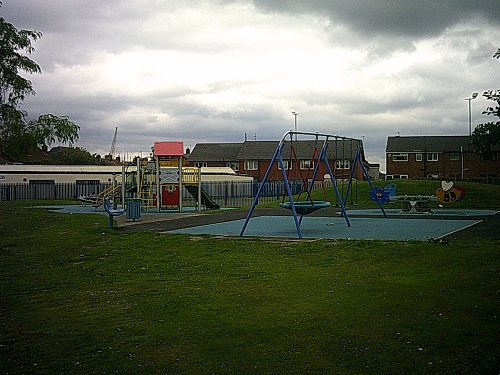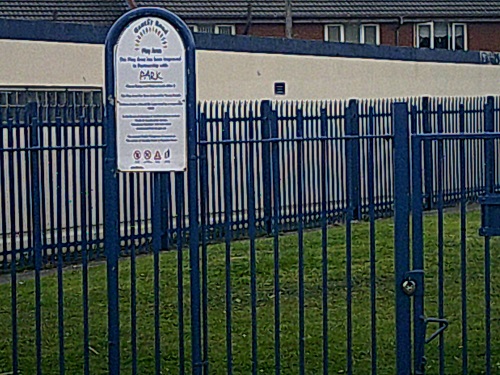The incredible £20,000 report into Dave Green/Colas that Wirral Council wouldn’t release on “data protection” grounds
The incredible £20,000 report into Dave Green/Colas that Wirral Council wouldn’t release on “data protection” grounds

The Colas contract included maintenance of Wirral’s roads
Three and a half months ago I submitted a FOI request for a dozen documents held by Wirral Council that were given to Richard Penn before writing his thirty-nine page report into Dave Green’s involvement in the Colas contract. Over three months later they have replied, providing a copy of the Council’s conflict of interest policy and conflict of interest procedure.
What’s interesting is what’s in the list of ten documents requested that they refused to supply on “data protection” grounds. One of these was a report that cost Wirral Council £20,000 from their then auditor the Audit Commission. It was a twenty-six page Public Interest Disclosure Act report into what happened during the tendering of the multi-million pound Colas contract. Despite Wirral Council’s reluctance to release it in response to my FOI request it was in fact published on their website as it was considered during an Audit and Risk Management Committee meeting that met in September 2010.
Here are some quotes from that report by the Audit Commission that obviously Wirral Council didn’t want to release in response to my Freedom of Information Act request:
“However, the issues raised were genuine concerns and our review did highlight some weaknesses including a lack of clarity about separation of duties, inadequate records and documentation and the need to clarify corporate systems for raising and recording potential conflicts of interest. There were also examples of a lack of proper consideration of or disregard of procedures, for example meeting with potential tenderers during the period between the post tender qualifying stage and tender
submission.” (page 7)
“These weaknesses potentially left the Council and individuals open to external challenge. If there had been external challenge to the contract by an aggrieved bidder, the remedy could have led to substantial damages being paid and loss of reputation by the Council. Going forward, a new EU Remedies Directive applicable to new procurements advertised after 20 December 2009 means that aggrieved bidders now have tougher remedies against public authorities that break procurement rules. The High Court will be able to set aside signed contracts resulting in delays to services, as well as significant and costly litigation and further procurement costs (see Appendix 3 for further detail).” (page 7)
“As noted at paragraph 1, the PIDA concerns were raised with us following an internal PIDA investigation. The Council needs to continually consider the adequacy of its Whistleblowing procedures and how well they are complied with to ensure that individuals have confidence that issues will be fully investigated and lessons learnt.” (page 7)
“Concerns were raised with us that a meeting was held by the Director of Technical Services and another senior officer with one of the tenderers between the post qualifying stage and tender submission.” (page 11)
“However, the meeting was not minuted and so there is no formal record of what was actually discussed. The Director of Technical Services and the other senior officer indicated that the reason for the meeting was to clarify whether tenderers could bid for both the main tender and for the sub-contract work for the in-house tender. Holding this meeting and failing to record it was clearly inappropriate and contrary to procedure and put the Council at risk of non-compliance with procurement regulations and the tenderer at risk of disqualification.” (page 11)
“The invitation to tender clearly specifies the procedure for enquiries from potential tenderers in order for the process to be open and fair for all concerned and to ensure there is no canvassing which would result in disqualification from the tendering exercise” (page 11)
“Concerns were raised with us that the Director of Technical Services had failed to declare a potential conflict of interest regarding a personal friendship with an individual in one of the firms bidding for the contract.” (page 12)
“Our review confirmed that a conflict of interest form was submitted by the Director but this was done retrospectively. We found no evidence of any information being shared as part of this association.” (page 12)
“The Director of Technical Services completed a conflict of interest declaration on 11 November 2008 and submitted it to the Chief Executive to be considered at his next annual Key Issues Exchange (KIE) meeting which was held in November 2008. However, it was following the award of the contract (16 October 2008) and should have been submitted and discussed with the line manager at the start of the tendering process. In addition, as the tenderer was an existing contractor, there should have been existing annual declarations on file. This retrospective declaration has clearly allowed the relationship between the Director and the individual to be viewed with suspicion.” (page 12)
“The Director of Technical Services indicated that the individual in the firm is an acquaintance who is a close friend of his brother who had previously worked for the firm. Although the Director was aware that the individual worked in the firm he judged that there was no conflict to declare. Once he became aware that the individual would be involved in the contract going forward the Director submitted his conflict of interest form in line with his judgement and his interpretation of the Council’s procedures.” (page 12)
“However, Council procedures clearly state that in order to manage conflicts of interest (including any perception of a conflict), employees should complete the form even if there is nothing to declare and return it to their line manager at the KIE and any amendments should be made immediately. During our review we found no evidence of any annual declarations of interest for the Director prior to the one submitted on 11 November 2008 apart from those covering the period when his brother worked for the firm. However, the absence of annual declarations was not unusual in the Council at that time and was raised as an issue in Internal Audit reports during 2008 and a memo dated March 2009.” (page 12)
“The key issue is whether the Director or his line manager should have made the judgement about whether and when a potential conflict should be declared. Our view is that it was the responsibility of the Director to make the line manager aware of his ‘acquaintance’ when the firm first contracted with the Council and this should have been reviewed when the tendering exercise started and the firm received an invitation to tender. The judgement about whether it was a conflict (or a possible perceived conflict) then rests with the line manager and arrangements could have been put in place to ensure that it was appropriately managed and any ‘perceptions’ of conflicts rebuttable.” (page 13)
“As noted above, the absence of annual and updated declarations as well as poor evidencing of review and consideration by line managers was not unusual within the Council. We also found during this review that there were weaknesses in the procedures around the employment of consultants, for example ensuring sign up to confidentiality clauses and completion of conflict of interest forms and supporting consideration (one of the consultants had previously worked for the winning firm).” (page 13)
“The Council needs to continually consider the adequacy of its Whistleblowing procedures and how well they were complied with to ensure that individuals with genuine concerns have confidence that issues will be fully investigated and lessons learnt.” (page 15)
“During the period when the contract was tendered and let any external challenge by aggrieved bidders could have lead to damages being paid.” (page 23)
If you click on any of the buttons below, you’ll be doing me a favour by sharing this article with other people.



